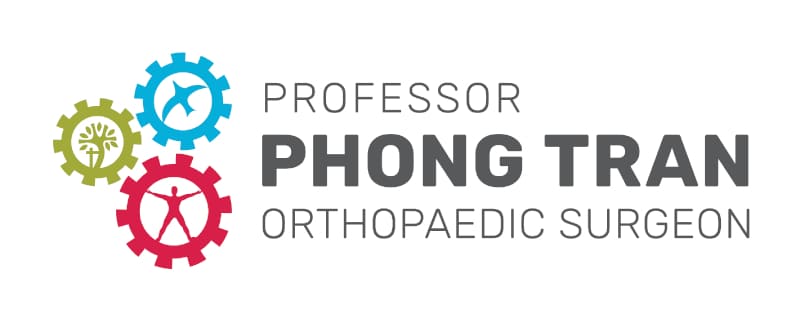Hip osteoarthritis is a common condition causing pain, stiffness and limping.
Your hip joint is covered by a smooth and glistening covering called articular cartilage. This cartilage helps your hip move and glide smoothly. Over time, your articular cartilage can wear away. This is called osteoarthritis.
The pain in hip osteoarthritis is most commonly felt in the groin. However, it can also be felt in the buttock and thigh. Some people also have only referred pain and only feel it in the knee or lumbar spine.
Osteoarthritis is usually diagnosed with a xray. However, in some patients an MRI is necessary.
When mild, osteoarthritis is best treated with conservative measures, such as weight loss, physiotherapy, water based exercises, lifestyle and activity changes and analgesia.
When severe, osteoarthritis of the hip can be very successfully treated with a total hip replacement.
Cause
Hip osteoarthritis is most common in people older than 55. However, it can also occur at younger ages, especially in people who have injured their joints or have hip abnormalities such as FAI or hip dysplasia.
The risk factors for developing hip osteoarthritis include:
- age
- overweight
- injuries to the hip such as labral tears
- family history of arthritis
Treatment
Unfortunately, there is no cure for hip osteoarthritis. However, there are many options for treatment that will help with the symptoms.
Exercise
Regular exercise is very important. Low impact exercises are the best so keep the muscles around your hip strong without further damaging the joint. Exercises and activities to consider are:
- Muscle strengthening exercises (it may help to see a physiotherapist for a program)
- Walking
- Tai Chi
- Cycling
- Yoga
- Aquatic exercises
- Swimming
Healthy Weight
Maintaining a healthy weight is also very important. The extra weight puts pressure on your hip joint and surrounding muscles. Being overweight worsens the symptoms of hip arthritis and also worsens the progression.
Other Options
- Massage
- Walking aid such as a walking stick, crutches, walking frame
- Heat packs and hot water bottles
Medications
Medications – Recommended by scientific evidence
- Antiinflammatories (such as ibuprofen or voltaren)
- These can be very effective but should be used for short periods. Over the counter anti-inflammatories such as ibuprofen can be very effective and must be taken with food. But beware of the side effects of stomach and kidney problems. Your GP can also prescribe longer acting anti-inflammatories such as Meloxicam (Mobic).
- Antiinflammatory creams and ointments
- This can be tried. If it doesn’t work for you after a week, then stop using it.
Medications – Lack of Evidence
There are many complementary medicines, supplements and ointments that are sold at chemists which unfortunately has not been proven to work despite the labelling on the packet.
- fish oil
- avocado/soybean
- Indian frankincense (Boswellia serrata extract)
- turmeric
- pine bark extract.
Injections
Some injections can have short term benefits and the options include:
- steroid injections (cortisone)
- PRP injections
- Not enough evidence to provide a recommendation
- Lubricant injections (also called viscosupplementation or hyaluronic acid)
- Brand names – Synvisc, Durolane, Euflexxa
- Not recommended for hip osteoarthritis but has some benefit in knee osteoarthritis
- Stem cell (Expensive, no evidence that it works)
Other Therapies
- Acupuncture – No evidence
Surgical Options
Surgical options should only be considered after you have tried non-surgical options and your pain has become significant.
Arthroscopy
Hip arthroscopy is very useful for treating injuries such as labral tears and improving the shape of the hip such as in FAI. However, arthroscopy is not useful for the treatment of hip arthritis.
Hip Replacement
Hip replacement is a very successful treatment for severe hip osteoarthritis. Most hip replacements last over 20 years.
Further reading and resources
GP Guidelines for the Management of Hip and knee osteoarthritis
Management of Osteoarthritis of the hip – Evidence based clinical practice guideline (American Academy of Orthopaedic Surgeons)

